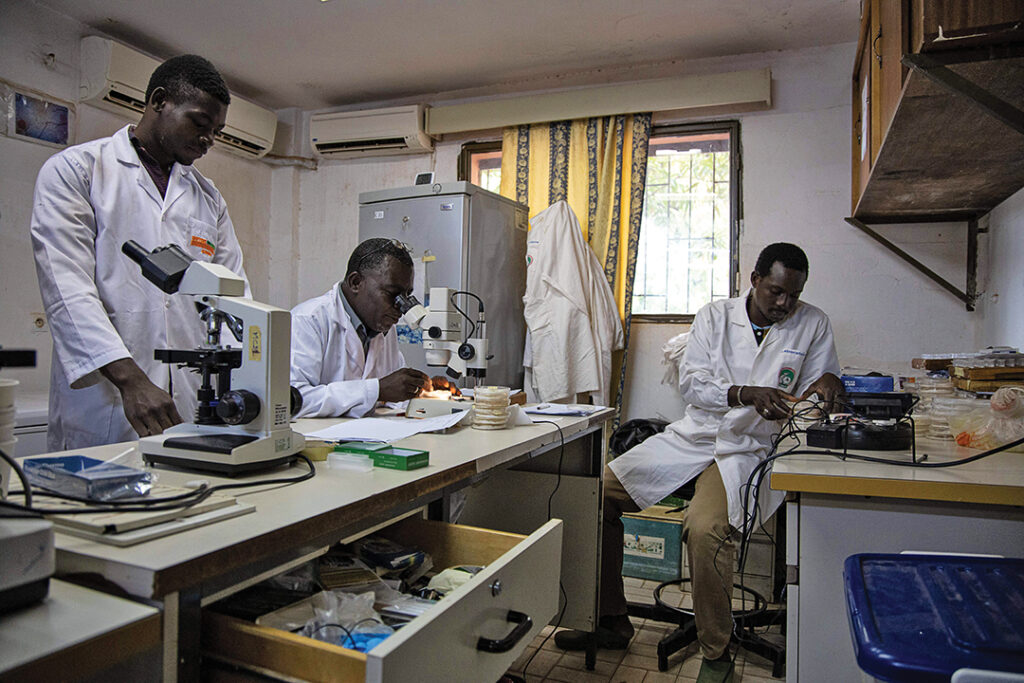ADF STAFF
A vaccine process tested in Burkina Faso and Mali could reduce malaria illnesses and deaths by 70%, scientists say.
The drug trial focused on giving young children a modified version of a vaccine that has been used for 20 years, along with administering anti-malarial drugs at the time of year when children are most vulnerable. In West Africa, malaria spreads as the rainy season begins, about June, when mosquitoes breed and bite.
Researchers said they were surprised at how effective the combination of vaccine and drugs turned out to be. The tests spanned three years. Scientists said that three doses of the vaccine and drugs before the rainy season, followed by a booster dose before the next rainy season, prevented and controlled the disease much more effectively than vaccines or drugs alone.
No part of the world suffers more from the disease than does Africa. In 2019, more than 90% of the 230 million cases of malaria worldwide were Africans, mostly children. The disease kills 400,000 people globally each year, most of them under age 5.
The New England Journal of Medicine published the test results. The trial followed 6,000 children under age 17 months in the two countries and found that the vaccine caused significant drops in cases of malaria, hospitalizations and deaths.
FWAfrica reported that GlaxoSmithKline created the vaccine, called RTS,S, more than 20 years ago. The vaccine kills parasites that multiply quickly in the liver. The anti-malarial drugs target parasites in the body’s red blood cells.
The science site Nature reported that the original version of the vaccine already has been administered to more than 740,000 children in Ghana, Kenya and Malawi as part of routine childhood vaccine programs.

